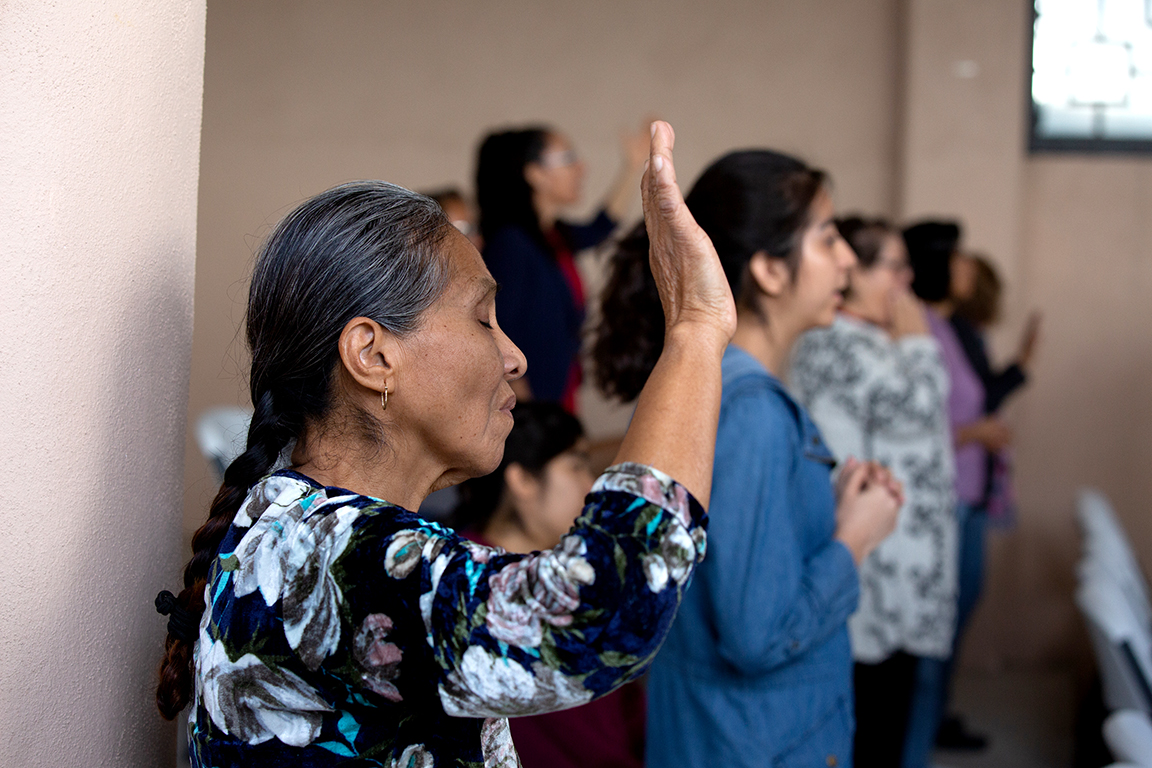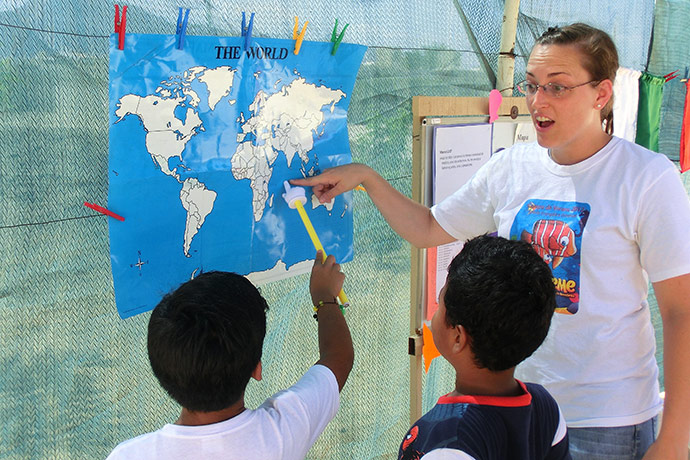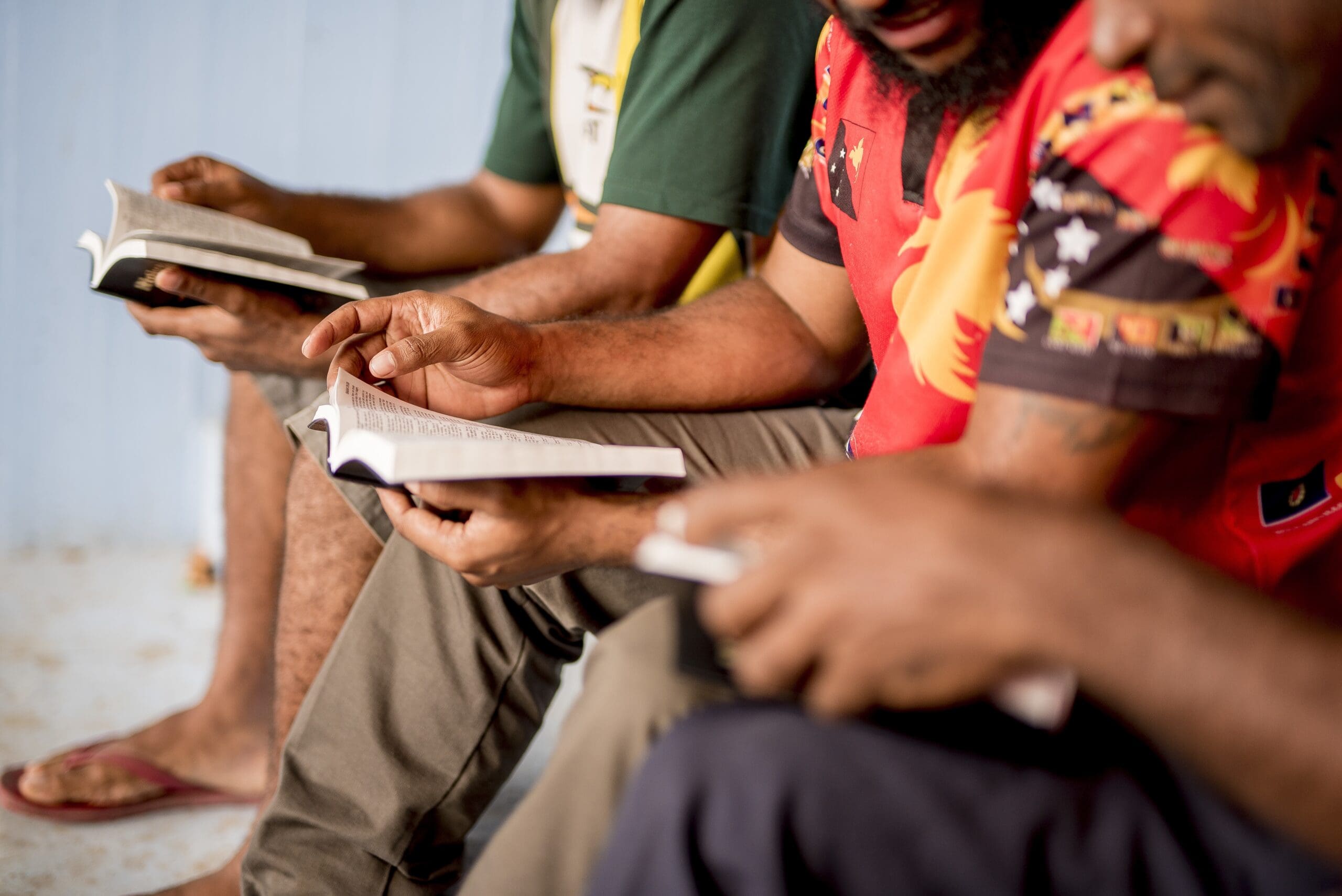
Becoming a Missionary, Missions Resources
Should You Pay for Your Own Mission Trip?
October 29, 2013
by Interactive Supply

This is the first of a three-part series exploring self-funding short-term missions. In this post, we look at saving for a mission trip as a spiritual discipline. Read Part II.
In August, Eliza* got two pieces of good news: a nannying job, and the email she had been hoping for. It was an offer to participate in the School of Biblical Studies, a nine-month Bible training program offered through Youth With A Mission (YWAM).
As with most YWAM programs or any mission trip, participants generally raise support to cover their costs. But as Eliza considered fundraising, she peeked into her bank account and decided against it. If she worked for a just few months, she figured, she could pay for the whole thing herself.
She is in the minority.
In many church circles, fundraising for short-term missions has become about as common as taking the Eucharist. It generates a steady stream of support letters and spaghetti fundraisers. It has become such a fixture that, more often than not, missions leaders consider it a faith-building rite of passage.
Such fundraising is also the source of ire among detractors of short-term missions. It siphons much-needed funding away from long-term missions, they argue, and in the worst cases it effectively creates subsidized church vacations.
But there is another way. At TEAM and at ministries around the world, a small handful of short-term participants choose to foot all or most of their own bill. They may work overtime, or live frugally during a summer job and stash their earnings away for their mission trip. Some still raise a small amount of support to cover any shortfall in their savings, but others are able to completely — and consistently — self-finance their own service.
Self-funding is hardly a new idea. But wondering what leads some people to do it, we interviewed a sampling of short-term missionaries at TEAM and other missions organizations who chose to at least partially fund their own trips. None of them were wealthy enough to cover their trips out of their existing funds — all had to work and save. Their motivations for doing it were varied, some purely practical, others more principled.
But all of these missionaries’ experiences suggest there are some significant benefits to the approach, both as a spiritual discipline for the individual and as a way of making churches’ missions dollars go further.
Self-Funding as a Spiritual Discipline
For Eliza, who had to cover more than $7,000 for her time with YWAM, it’s not that self-funding was more noble than raising support. She sensed God leading her to do it. “I felt like he was specifically saying, ‘You could ask for support, but that’s not the way I’m going to be sufficient this time,’” she said. “He was saying, ‘You have to put your heart into working for it.’”
In fact, fundraising in many ways felt like the easier choice for Eliza, who grew up in an church culture that embraced fundraising for STMs. “Honestly, me paying for it was more of a step of faith than asking for money,” she said.
Like Eliza, most of the short-term missionaries interviewed shared the view that God can and often will provide work or extra income to fund a trip, and that the approach can be just as valid and formative as raising support.
“God gives us the tools we need to do the things he wants us to do,” said Chelsea Burdick, an artist and graphic designer in Los Angeles who worked odd jobs to earn more than $2,000 toward a TEAM short-term trip in Thailand. “Sometimes that means he gives us the patience to wait (for donations). And other times, it means he drops a summer camp counseling job, a design internship, and a ton of freelance gigs in your lap.”
To be sure, working to pay your own way is a sacrifice. After all, a traveler who raises funds for a trip gets to keep job earnings for himself. And for many, personal finances may be so tight it would take them years to work or save enough extra to fund a short-term trip.
But John* has made lifestyle choices a part of his decision to self-fund missions. A graduate student on the West Coast, he works seasonally as a firefighter to cover the cost of regular trips to serve with TEAM in a creative-access region. He’s not getting rich, but he makes it work by living simply. It has helped him keep his priorities in focus.
“To me, having a house and having all the nice amenities we have here in the States really isn’t all that important,” he said. “I’m not in the game to get a nice house and a nice car.”
Eliza had to make sacrifices as well, working well over 40 hours many weeks and living with her parents while saving up. The long grind of earning money she wouldn’t get to keep helped her understand what donors give up when they decide to support a missionary.
“It’s given me the perspective of what I’m really asking a supporter to do when I ask for money in other circumstances,” she said. “I’ve actually invested what I’ve earned in my life.”
*Last names omitted to protect identities.
Do you want a way to give back to your supporters? Check out this article post to find out how you can bless your sending church through your mission trip!

